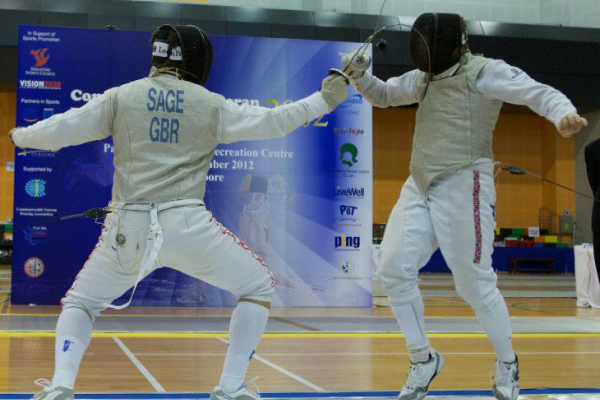I’ve been a keen sportsman all my life and, being tuned into how my body moves, it was slight and subtle changes in my coordination and dexterity that first alerted me to something being wrong. I was subsequently diagnosed with Parkinson’s Disease at age 59, four years ago.
I’ve played squash from an early age, and have been a keen windsurfer, climber, and cyclist most of my life. But my lifelong passion, and my main sport, is fencing. I started when I was 11 and have competed nationally and internationally all my life. As a veteran fencer, over the age of 50, I have been selected for the GB Veterans fencing team to represent Great Britain at the Veterans World Championships on 6 occasions, most recently in 2019, the year of my diagnosis. I believe fencing is a great exercise for People with Parkinson’s as it combines physical exercise and cognitive activity; I’m physically working and mentally thinking tactics at the same time.
The movement disorders associated with Parkinson’s Disease are slowly progressing and are now significantly impacting my sport. I have been faced with a choice: give up and retire or accept that my standard is declining, that I will lose fights I used to win, but continue to train and compete. I choose not to give in.
Every Person with Parkinson’s is different, but exercise is good for us all. - Richard
On top of my fencing, I’m still playing squash (albeit) badly, cycling and swimming slowly, and regularly relaxing my stiff muscles with stretching, yoga, massage, and gym routines. The exercises I do cover four key areas: strength, flexibility, aerobics, and balance. My clinicians all tell me these exercises are good for me and are slowing the progression of my disease. I think they’re right. But exercise also gives me other important benefits. It gives me a sense of control, of being empowered to do something that helps me delay the progression of the disease. It also gives me camaraderie, in that, my sporting friends know what I’m grappling with and support and encourage me. Their encouragement is important as motivation and apathy can be key issues for people living with Parkinson’s.
If I could monitor my motor states – On / Off / Dyskinesia in conjunction with working with my clinicians, I know I can continue working to be the best version of me.

About the author: Richard Sage is a Parkinson’s advocate and patient advisor for Orbit Health. He is currently part of Orbit’s Early Access program.



